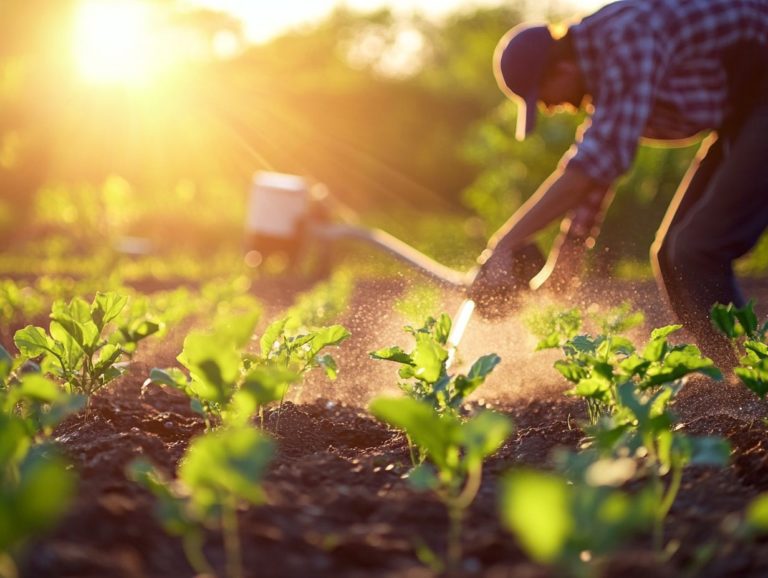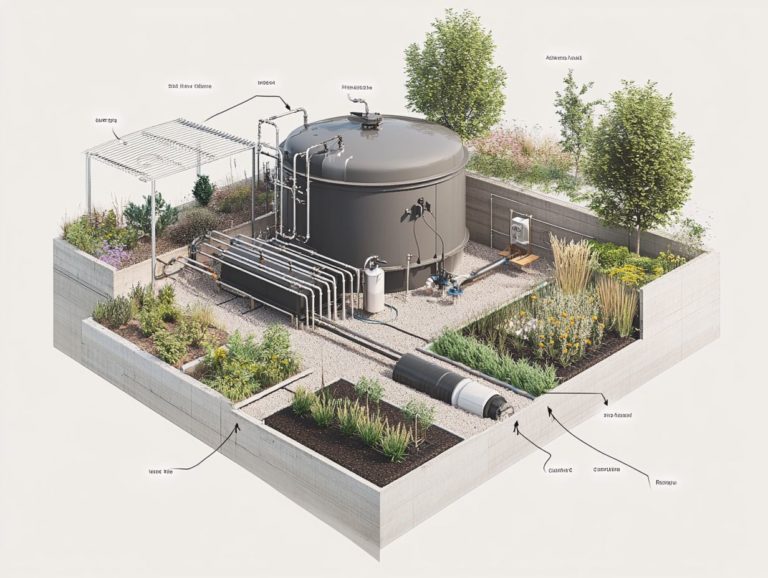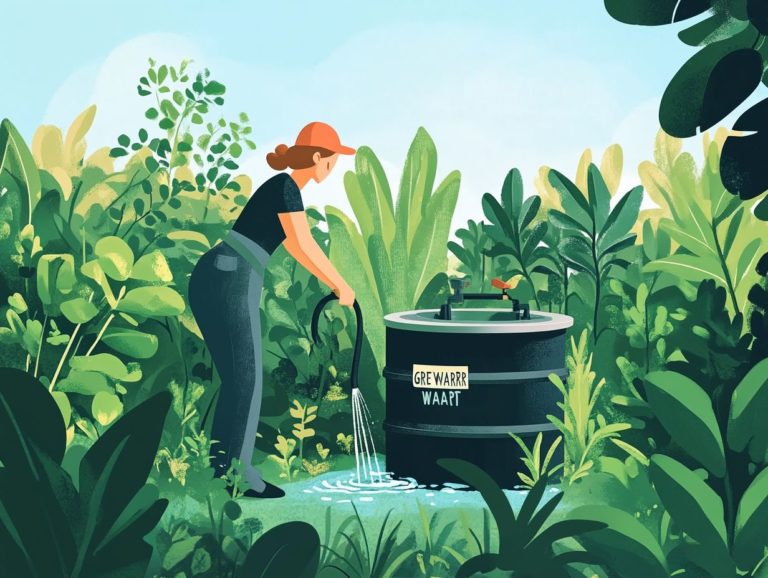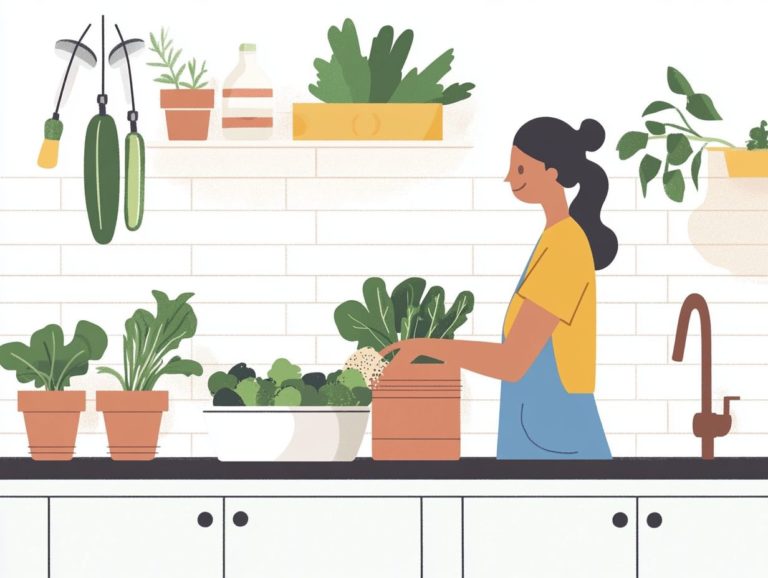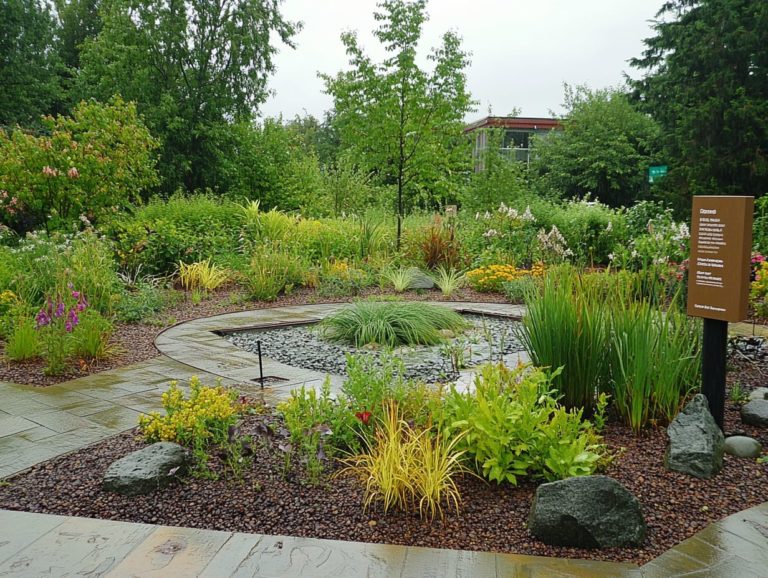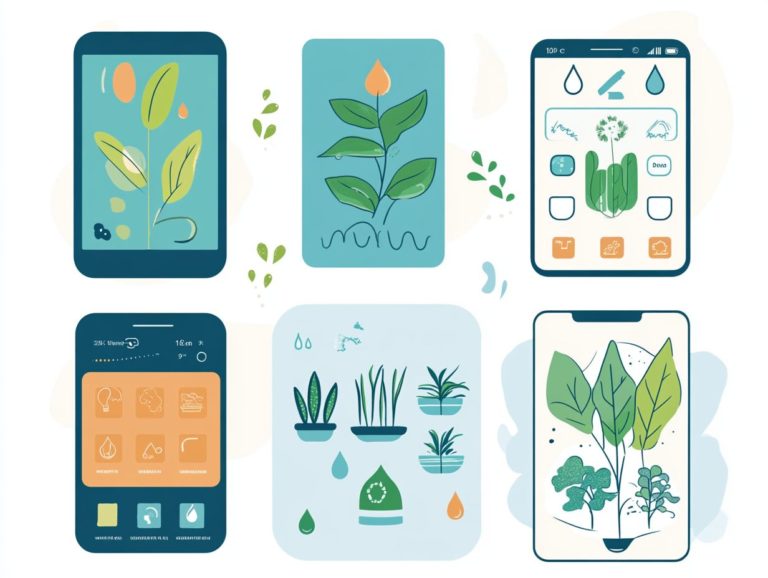10 Common Myths About Water Conservation
Water conservation is essential for a sustainable future, yet many myths obscure our understanding of its significance.
From misconceptions about where conservation truly matters to the belief that only individual efforts can spark change, these myths impede meaningful action.
This article reveals ten prevalent misconceptions surrounding water conservation, demonstrating why every drop counts from households and businesses to agriculture.
Engage with us as we debunk these myths and explore the genuine impact of conserving this vital resource.
Contents
- Key Takeaways:
- 1. Water Conservation Is Only Important in Dry Regions
- 2. Only Individuals Can Make a Difference in Water Conservation
- 3. Water Conservation Is Expensive
- 4. Water Conservation Is Only About Reducing Outdoor Water Use
- 5. Water Conservation Is Only About Fixing Leaks
- 6. Water Conservation Only Involves Shortening Showers
- 7. Water Conservation Is Not Necessary if You Have a Private Well
- 8. Water Conservation Is Not Important for Businesses
- 9. Water Conservation Only Involves Limiting Agricultural Water Use
- 10. Water Conservation Is Only About Saving Water for Future Generations
- What Is Water Conservation and Why Is It Important?
- What Are the Most Effective Ways to Conserve Water?
- How Can Businesses Contribute to Water Conservation Efforts?
- What Are the Environmental Benefits of Water Conservation?
- How Can Water Conservation Help Save Money?
- Frequently Asked Questions
- Q1: What are the 10 common myths about water conservation?
- Q2: Is water conservation only necessary in areas with drought?
- Q3: Do dishwashers waste more water than hand washing?
- Q4: Are low-flow showerheads ineffective in providing enough water pressure?
- Q5: Is watering the lawn the main cause of water waste?
- Q6: Can small changes make a difference in water conservation?
Key Takeaways:
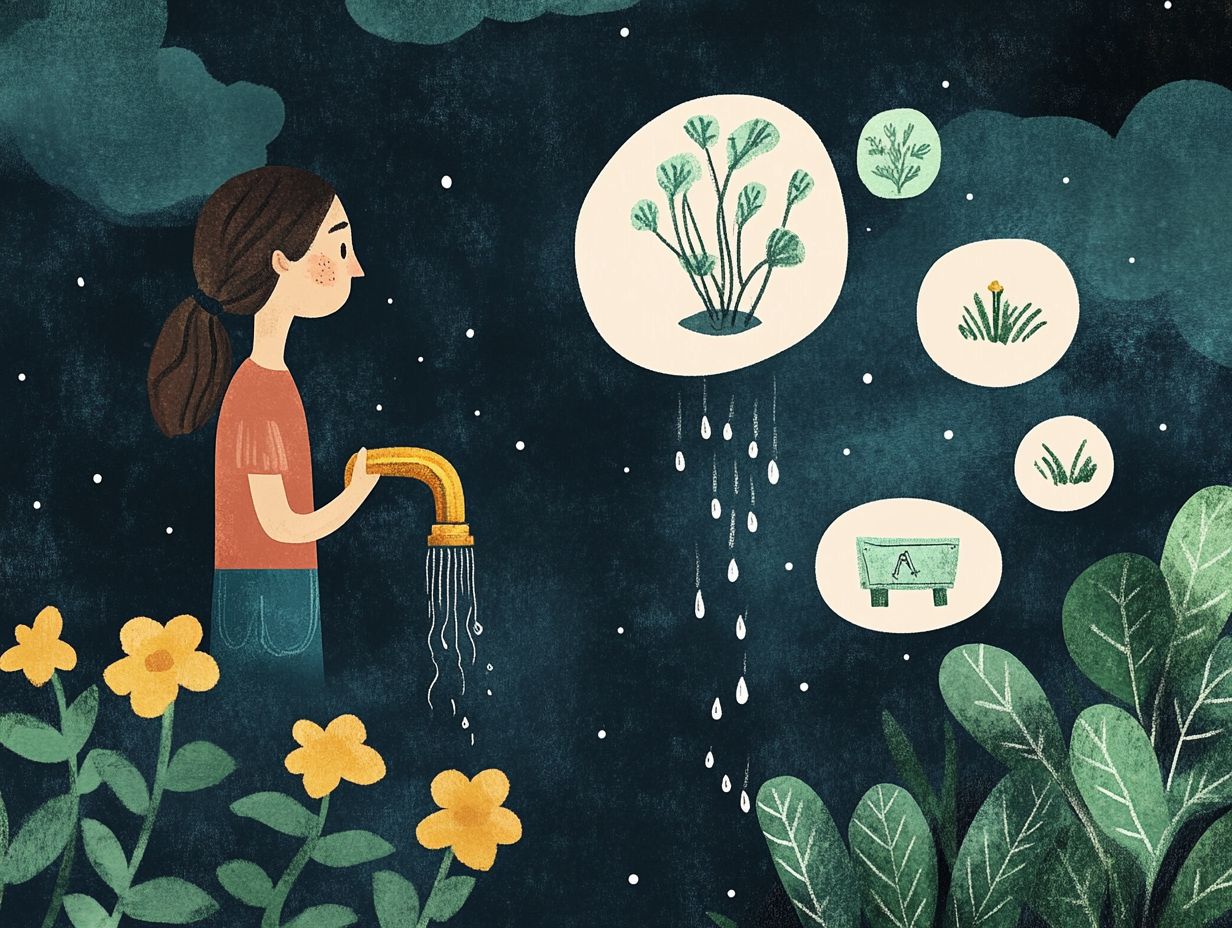
- Water conservation is important in all regions, not just dry ones.
- Individuals and businesses both play a crucial role in water conservation.
- Water conservation doesn’t have to be expensive or involve major changes.
1. Water Conservation Is Only Important in Dry Regions
Water conservation is a pivotal concern that transcends the boundaries of dry regions. As global demand for water continues to rise, its impacts resonate across various climates and ecosystems, emphasizing the urgent need for robust water management practices everywhere.
Understanding how water resources connect is vital for our environment. Your commitment to sustainable practices ensures a viable future for all.
In both urban and suburban settings, pressures from population growth and industrial development intensify the challenges of managing water resources. What strategies can you adopt to save water today?
Cities, often marked by high water demand, face significant stress on their supply systems. Meanwhile, suburban areas contend with maintaining lawns and gardens alongside community water needs.
The diverse climates across the globe from arid deserts to lush rainforests shape how ecosystems respond to water fluctuations. By embracing sustainable practices such as rainwater harvesting, drought-resistant landscaping, and responsible irrigation techniques, you can significantly contribute to comprehensive water management efforts.
This proactive approach reduces negative effects of climate change and fosters a balanced relationship with our precious natural resources.
2. Only Individuals Can Make a Difference in Water Conservation
While individual actions are crucial for water conservation, businesses and communities also hold significant potential to make a difference through water-efficient technologies and effective conservation practices.
By harnessing their resources and innovative spirit, companies can implement systems that drastically cut down on water waste. For instance, advanced irrigation techniques in agriculture, such as drip irrigation, water plants directly at their roots, minimizing evaporation and runoff.
As a consumer, your choices play a pivotal role in shaping these conservation efforts. By opting for products from brands committed to sustainable practices, you can drive demand for environmentally friendly initiatives.
Successful corporate programs, like Coca-Cola’s water stewardship framework, illustrate how companies can return more water to local communities than they consume. This exemplifies the powerful synergy between your commitment and corporate responsibility in tackling the pressing issue of water scarcity.
3. Water Conservation Is Expensive
Contrary to popular belief, water conservation doesn t have to break the bank. Many water-saving devices and efficient appliances can lower your water costs and improve plumbing systems over time.
From low-flow faucets to smart irrigation systems, these devices minimize water usage and can significantly reduce utility bills. Many homeowners mistakenly think that investing in these devices comes with a hefty price tag.
The reality is that long-term savings and reduced water waste far outweigh any initial investment you might make. By embracing efficient water management practices, you can shatter misconceptions about the financial burdens often associated with these measures.
Instead, adopt a sustainable lifestyle that brings both environmental and economic benefits. The combination of reduced consumption and lower bills is a smart choice for anyone looking to manage their resources more effectively.
Join the movement for water conservation today!
4. Water Conservation Is Only About Reducing Outdoor Water Use
Water conservation goes well beyond merely cutting back on outdoor water usage. It’s about optimizing every drop within your household and embracing water-efficient technologies, both inside and out, to significantly reduce your overall water footprint.
Indoor water use is mainly focused in areas like bathrooms and kitchens. Even minor adjustments in these spaces can yield impressive savings.
- For instance, installing low-flow faucets and showerheads helps you lower water consumption without sacrificing comfort.
- Address leaks promptly and use the dishwasher instead of handwashing to save water in the kitchen.
Integrating efficient irrigation systems for landscaping conserves water while ensuring that your plants receive just the right amount, minimizing excess runoff.
This approach contributes to a water-efficient and sustainable home environment, allowing you to take pride in your conservation efforts.
5. Water Conservation Is Only About Fixing Leaks
Although fixing plumbing leaks is crucial for water conservation, it’s just one piece of the puzzle. Adopt water-saving habits and use water-efficient appliances in your daily life.
Beyond addressing obvious leaks, you can benefit significantly from proactive maintenance. Regularly inspect plumbing systems and pipes to prevent minor issues from escalating into major headaches.
Install water-efficient fixtures, like low-flow showerheads and toilets that allow you to choose between two flush options to save water, to cut your overall usage.
Develop consistent water-saving habits, such as turning off the tap while brushing your teeth and running dishwashers and laundry machines only with full loads. These simple actions create a meaningful cumulative impact on water resources. Incorporating these practices into your routine not only contributes to a more sustainable environment but also helps lower your monthly utility bills.
6. Water Conservation Only Involves Shortening Showers
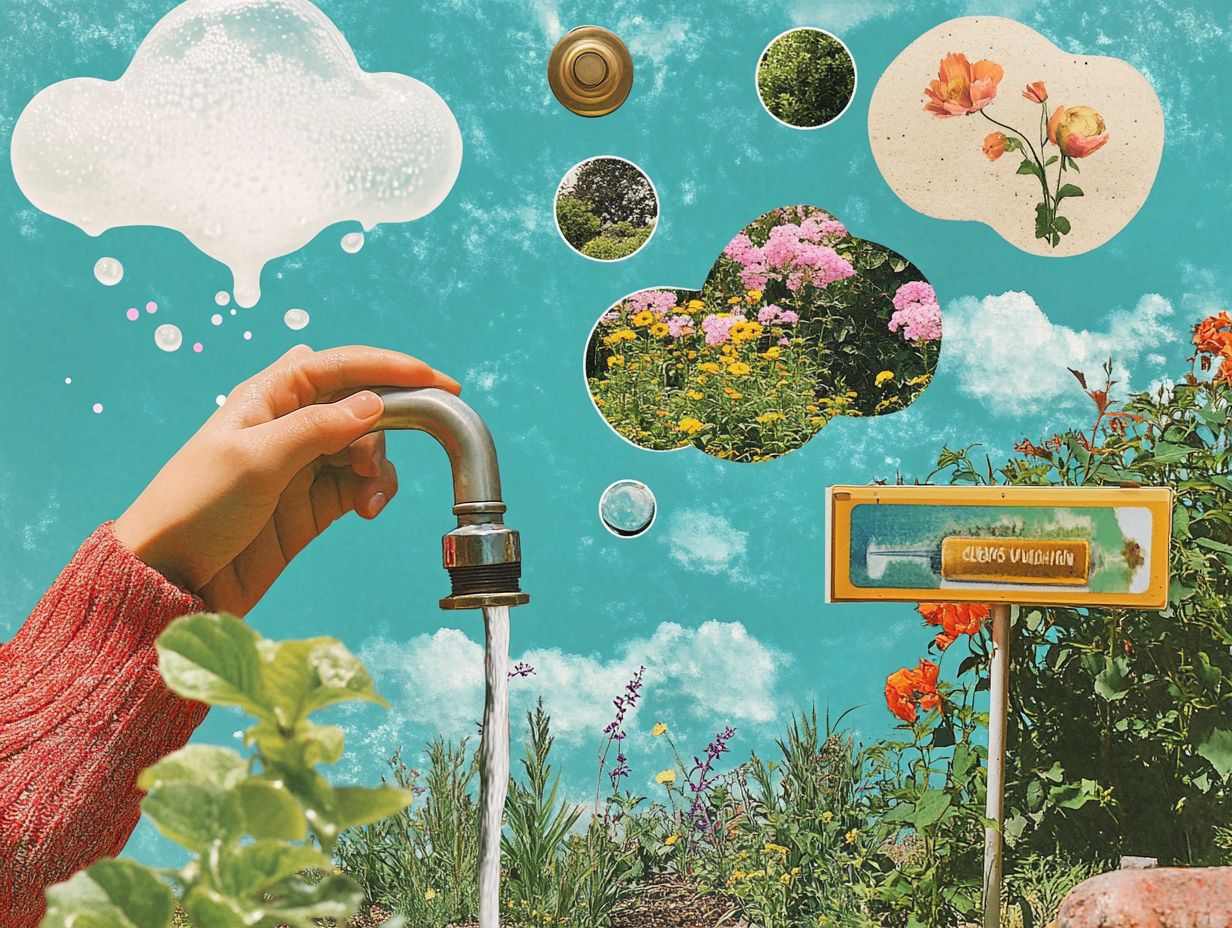
While shortening your showers is a well-known water-saving habit, true water conservation involves a range of practices, including the top 10 water conservation tips for families.
Consider installing low-flow fixtures and using water-efficient appliances to significantly reduce your household water usage. Incorporating these measures into your daily routine can make a meaningful difference in your water consumption.
For example, swapping standard showerheads and faucets for low-flow alternatives allows you to enjoy bath time without sacrificing pressure refreshing and eco-friendly all in one.
Using water-efficient appliances, like dishwashers and washing machines that optimize their cycles, saves your family gallons with every load. Simple adjustments like promptly fixing leaks and collecting rainwater for gardening also play vital roles in conservation efforts.
Encouraging everyone in your household to adopt these practices fosters a culture of sustainability, making the commitment to save water a shared responsibility.
7. Water Conservation Is Not Necessary if You Have a Private Well
Even if you have your own private well, water conservation remains critical. By ensuring the quality of your water resources and practicing effective water management, you can prevent pollution and promote environmental protection.
As a well owner, your responsibility extends beyond collecting water; it s about nurturing a vital resource impacting the surrounding ecosystem. Mindful choices, such as harnessing rainwater and minimizing chemical use, create a ripple effect that enhances local water quality.
Reducing the risk of contaminants infiltrating your well contributes to the sustainability of groundwater systems. This commitment not only protects your drinking water but also supports the local flora and fauna that depend on these resources, reinforcing the natural balance necessary for a thriving ecosystem.
8. Water Conservation Is Not Important for Businesses
Water conservation is just as crucial for your business as it is for the planet. By using simple, eco-friendly habits and adopting water-efficient technologies, you can cut down on water costs while boosting your company’s sustainability profile.
Try methods like collecting rainwater or installing low-flow fixtures. These can significantly reduce your water consumption, leading to considerable cost savings, especially in water-intensive industries like manufacturing and hospitality. Plus, they showcase your commitment to environmental responsibility.
For example, a well-known hotel chain integrated water-efficient technologies across its properties, achieving a remarkable 30% reduction in water usage. Such initiatives not only bolster your bottom line but also enhance your reputation among eco-conscious consumers.
9. Water Conservation Only Involves Limiting Agricultural Water Use
Limiting agricultural water use is essential, but water conservation goes beyond that. It includes using smart irrigation systems and water-efficient technologies that optimize water resources across all sectors.
These smart systems use sensors and weather data to give crops just the right amount of water, ensuring that every drop counts.
This approach works for urban landscaping, industrial processes, and even your own residential gardening. By embracing these conservation practices, you can significantly reduce your water footprint and promote sustainability.
These practices are not just for today; they are crucial for securing water supplies for future generations and mitigating climate change effects. This highlights the urgent need for widespread adoption across all sectors of society.
10. Water Conservation Is Only About Saving Water for Future Generations
While saving water for future generations is a noble aspiration, it’s equally important to recognize that water conservation is key in tackling today s pressing issues of water scarcity and effective management practices.
Using simple, eco-friendly habits isn’t just a future goal; it s a responsibility that demands action now. By making small adjustments to your daily habits, you and your community can cut down on water waste, easing the burden on local supplies.
Taking action now not only protects our planet but also empowers communities. These efforts help protect ecosystems that rely on balanced water levels while preventing the depletion of essential resources.
In the long run, these measures enhance resilience against droughts and climate-related challenges, creating a healthier environment for everyone. When we all understand water scarcity, we can take action together, inspiring innovations in technology and policy reforms that emphasize sustainable water use.
What Is Water Conservation and Why Is It Important?
Water conservation is about managing water resources responsibly through sustainable practices aimed at preserving our planet s most vital resource. This is essential for environmental protection and addressing water scarcity and pollution challenges.
In today s rapidly changing climate, the importance of these efforts has surged as communities worldwide face increasing demands for freshwater. Effective water management safeguards this crucial resource and nurtures the health of ecosystems that rely on it.
By adopting sustainable practices like rainwater harvesting, efficient irrigation, and wetland rehabilitation, you can significantly reduce water waste. Such initiatives not only ease the strain of water scarcity but also empower societies to build resilient infrastructures capable of withstanding climate change impacts.
Ultimately, embracing these measures paves the way for a more sustainable future.
What Are the Most Effective Ways to Conserve Water?
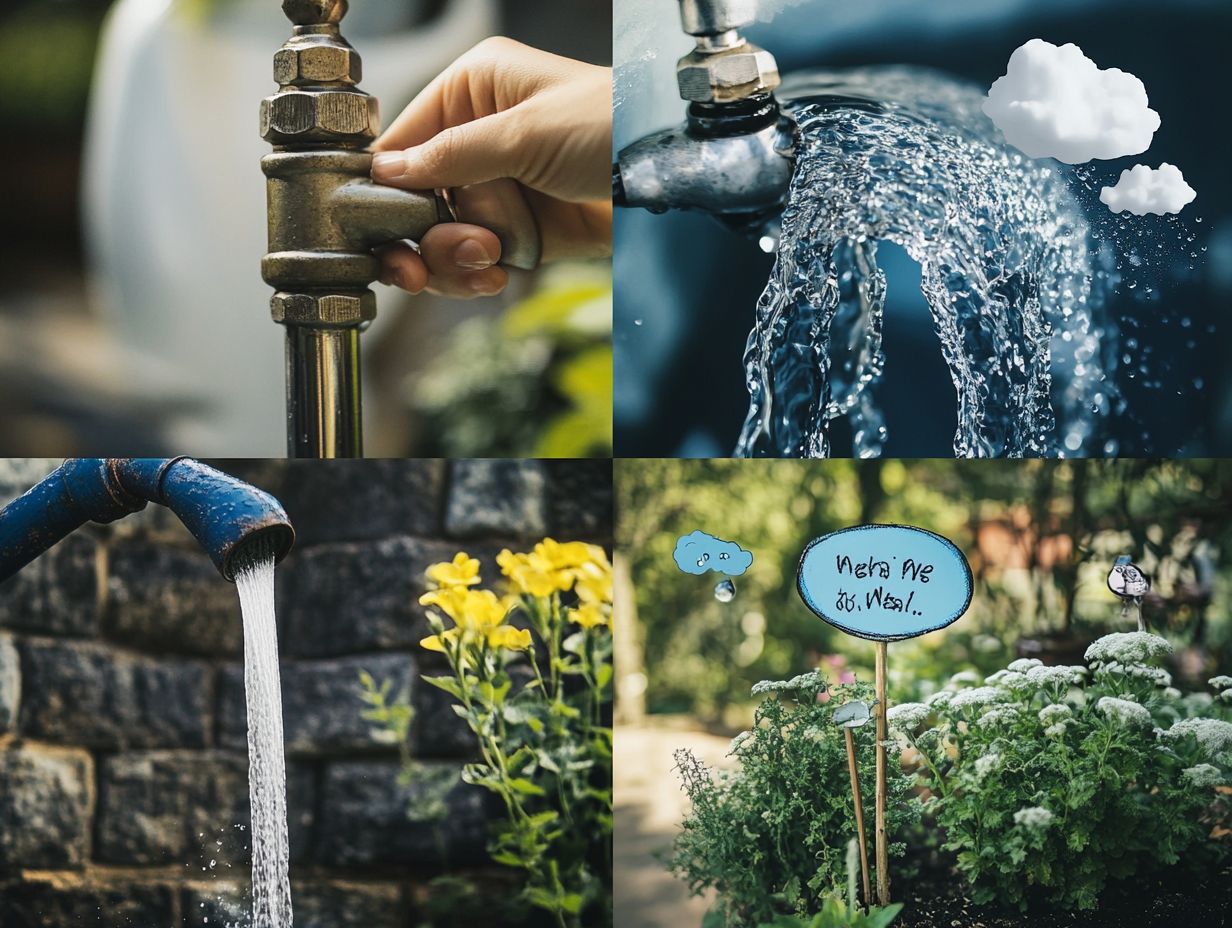
You can conserve water effectively by adopting water-saving devices and implementing efficient plumbing solutions. Using new technology can significantly reduce household water usage while promoting conservation practices.
For example, installing low-flow toilets these are toilets designed to use less water can cut your water usage by 20-60% compared to older models. This can lead to noticeable reductions in your water bill.
Using faucet flow reducers helps decrease water flow without sacrificing pressure, resulting in substantial savings. Smart irrigation systems can also enhance your efforts by adjusting the watering schedule based on weather patterns and soil moisture levels.
These approaches encourage responsible usage and contribute to long-term sustainability, safeguarding precious water resources for future generations. Act now and start conserving!
How Can Businesses Contribute to Water Conservation Efforts?
Businesses can lead the way in water conservation by embracing water-efficient technologies and implementing practices that reduce consumption.
Investing in employee training programs centered on sustainable practices empowers your workforce with the knowledge to make informed decisions about water usage. Efficient water management systems allow monitoring of consumption patterns and pinpointing areas for improvement.
Engaging with the community through outreach initiatives or partnerships fosters a collective commitment to preserving this vital resource. These efforts contribute positively to environmental sustainability while offering cost savings and enhancing public perception, ultimately supporting your business s bottom line. Join the movement!
What Are the Environmental Benefits of Water Conservation?
Water conservation offers many environmental benefits, like better water quality and sustainable management of this vital resource.
By committing to these practices, you help reduce water pollution and habitat degradation. Managing this precious resource wisely enables your community to better withstand challenges posed by drought and climate change.
Take rainwater harvesting, for instance. It helps decrease groundwater depletion and supports local plants and animals by maintaining critical moisture levels in their habitats.
Engaging in wetland restoration projects improves water filtration processes that enhance overall water quality. These initiatives foster biodiversity and allow various species to flourish.
Success stories in the Everglades and the Chesapeake Bay show how strategic water conservation efforts can revitalize ecosystems. Your commitment to sustainability can make a difference!
How Can Water Conservation Help Save Money?
Implementing water conservation strategies can lead to impressive savings on your water costs. By using water-efficient appliances and adopting conservation practices, both households and businesses can enjoy substantial savings over time.
For example, installing low-flow showerheads and faucets can reduce water usage by up to 30%, translating to about $200 in annual savings for the average family. In areas that embrace rainwater harvesting systems, residents report reductions in municipal water bills by as much as 50%!
A California city case study showed that businesses adopting xeriscaping initiatives saw landscaping costs decrease by over 60%. Simple measures conserve water and enhance economic efficiency.
Recognizing and implementing such strategies enables you to create a financially sustainable future. Take action today and start saving!
What Are the Long-Term Effects of Ignoring Water Conservation?
Ignoring water conservation can have grave long-term consequences, including severe water scarcity, lowered water quality, and increased environmental degradation. This jeopardizes the availability of this essential resource for future generations.
The repercussions extend well beyond merely running short on water; they send shockwaves through ecosystems, disrupt local economies dependent on agriculture and tourism, and intensify social tensions over resource distribution.
As freshwater supplies dwindle, increased competition for clean water may arise, leading to conflicts and public health crises.
Implement proactive measures like rainwater harvesting, wastewater recycling, and adopting water-saving tools. These steps not only benefit the immediate environment but also lay the groundwork for sustainable development, ensuring that future generations inherit a world where clean, accessible water is a norm, not a luxury.
Frequently Asked Questions
Q1: What are the 10 common myths about water conservation?
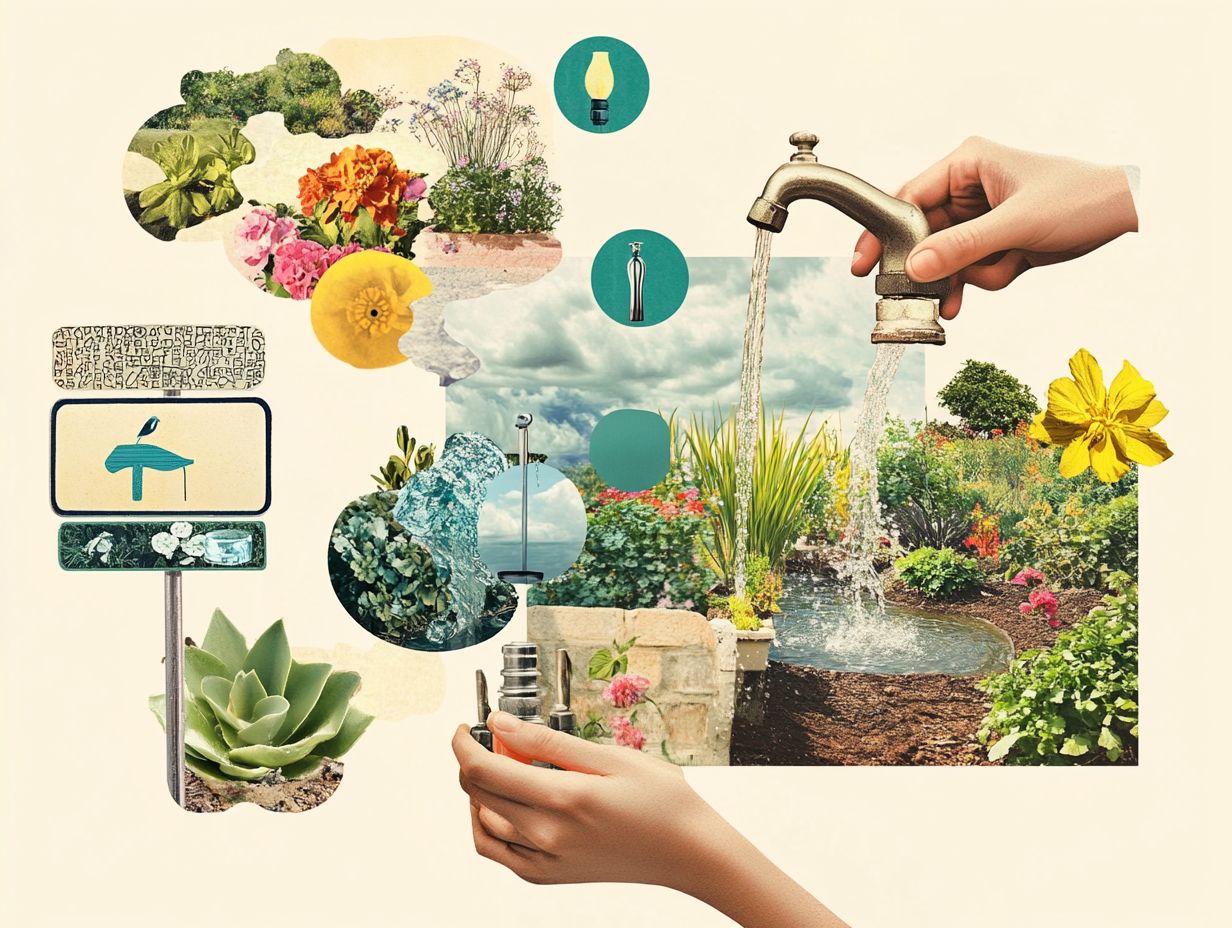
A1: The 10 common myths about water conservation are as follows:
- Water conservation is only necessary in areas with drought.
- Using a dishwasher wastes more water than hand washing.
- Low-flow showerheads don’t provide enough water pressure.
- Watering your lawn is the main cause of water waste.
- Only major changes can make a difference in water conservation.
- Tap water is not safe to drink.
- All types of plants require the same amount of water.
- Water conservation is only the responsibility of the government.
- Fixing leaks will not make a significant impact on water conservation.
- Water-saving appliances and fixtures are too expensive.
Q2: Is water conservation only necessary in areas with drought?
A2: No, water conservation is necessary in all areas, regardless of drought conditions. Conserving water helps reduce strain on water sources and ensures there is enough clean water for everyone.
Q3: Do dishwashers waste more water than hand washing?
A3: No, dishwashers are actually more water-efficient than hand washing. They use about 3-4 gallons of water per cycle, while hand washing can use up to 27 gallons of water.
Q4: Are low-flow showerheads ineffective in providing enough water pressure?
A4: No, low-flow showerheads are designed to provide enough water pressure while using less water. They can save up to 2,900 gallons of water per year.
Q5: Is watering the lawn the main cause of water waste?
A5: No, watering the lawn is not the main cause of water waste. Overwatering, leaks, and inefficient irrigation systems are the main culprits.
Q6: Can small changes make a difference in water conservation?
A6: Yes, small changes such as fixing leaks, turning off the tap while brushing your teeth, and using a broom instead of a hose to clean driveways can make a significant impact on water conservation over time.

